THE CUB Review
Nintendo Switch
The ruins of Earth are your jungle gym in this post-apocalyptic title.
Reviewed by JustAnotherJake on Jan 24, 2024
In 2021, developers at Demagog Studio released a game called Golf Club: Nostalgia. Some may know it as Golf Club: Wasteland, but it eventually went through a title change. The game was, as the title suggests, a golf game. It was rather interesting in concept as it took place on a ruined Earth and featured an astronaut playing golf in the ruins left behind.
The world was interesting but left a lot to be designed as the game did not focus on exploration or a typical form of exploration. For those who were curious about what there was to discover on this ruined Earth, Femagog had a present hiding behind their back. With their most recent title, THE CUB, players can now experience the vicious wasteland that was once Earth in a platforming adventure title.
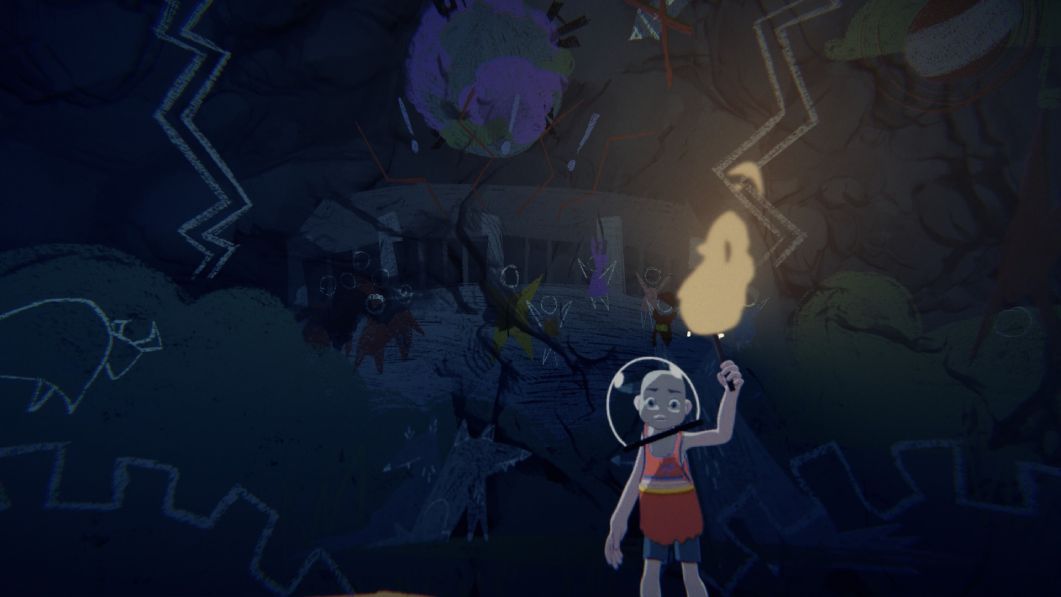
The type of game that THE CUB is rather straightforward, a platformer with a story to fill in the slower moments. Similar to the early Disney games found on the Sega Genesis, even the game's description will tell players even specifically referencing the Jungle Book. Despite this self-given comparison, it isn’t in a visual style that would immediately give this impression.
If anything, one would expect the inspirations to be something like Limbo. This is likely due to simple visual styles, as THE CUB is in a smooth and artsy style like Limbo, whereas the retro Disney games mentioned as the core inspiration were pixelated. But that is all surface level; diving into the game reveals more than just a basic inspiration or knockoff.
The direct call back to The Jungle Book becomes clearer as THE CUB continues. While it is an intense action platformer like those Disney games, the narrative follows a similar theme to Disney movies but on a much more galactic scale. The humans on Earth had fled to Mars to escape the incoming ruin, but our protagonist is someone who was left behind and raised by wildlife.
The connections to The Jungle Book are ever clear at this point. Some of the Martians want to take the protagonist back for research purposes and in hopes of a reward, so what follows is a large bout of escaping the Martians and surviving the wilds.
Along with that basic plot, THE CUB will also be telling a lot of environmental stories with different items to find and different locations to see. There are a lot of really good things hidden throughout, and the best part is that, for the most part, there isn’t anything overly hidden, but there are hidden things that will reward players who are curious enough to explore.
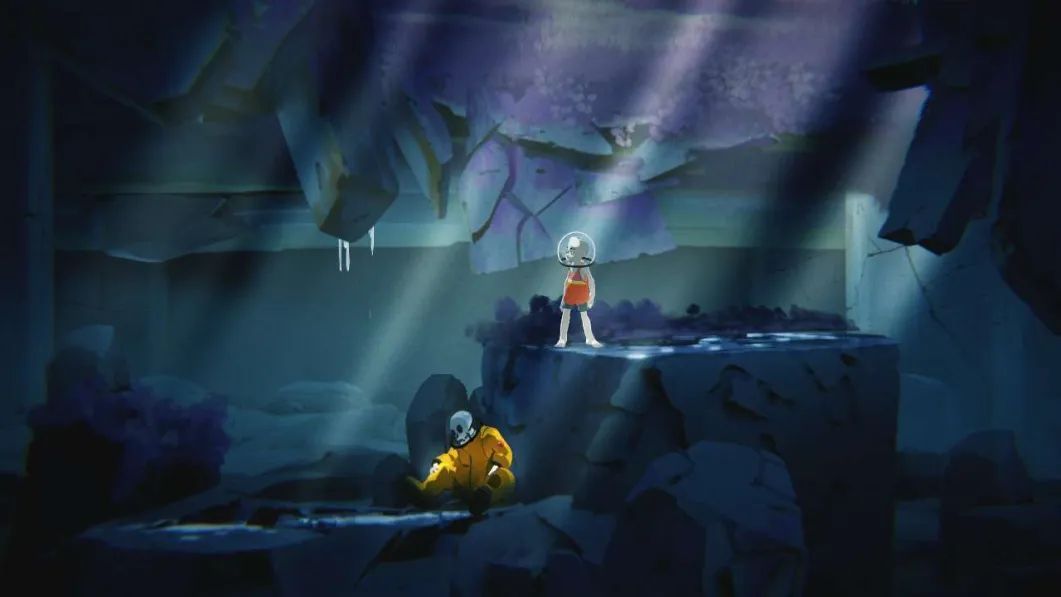
The pure amount of things to find and discover is enough alone to drive some players to continue their adventure, and it helps with the fact that the base game remains as entertaining as one would expect. It also helps with replay value, allowing players to blast throughout the game for the core narrative and then go back for another playthrough and go for collectables.
The narrative of Te Cub is heavily tied to the games world. As mentioned previously, the game takes place on a ruined Earth, so of course, a lot of the level design features mutant creatures, ruined buildings, and overgrown plants. The game’s separate areas offer quite a bit of variety, whereas a lot of games with similar styles of gameplay heavily rely on the same-level themes and designs.
While, of course, the whole theme of THE CUB is ruin, it isn’t as simple as that. Some sections will take the player high up into the trees, deep into crumbling buildings, and down into the murky and dangerous waters. Everything feels threatening on this Ruined Earth. As a bonus to those who played Golf Club: Nostalgia, there are a decent amount of callbacks and even some stage elements that will spark some memories.
The gameplay in THE CUB can be described as action and adventure with a focus on 2D platforming. The game can be divided into chapters, but there aren’t individual stages like something someone would explicitly in a Mario or Sonic Game. This is another place where the initial thought that the game is like Limbo ties back, but again, THE CUB keeps things unique and interesting.

There are obvious elements to the gameplay, like sliding and jumping to navigate different forms of terrain, but rather than incorporating puzzles, the gameplay in THE CUB has a focus more tied down to simply moving forward. That doesn’t mean that the player is going to be only moving right; it just means that the only real puzzles are simple platforming challenges.
There are indeed more brain teaser-type moments in THE CUB, but they usually are just on the player to decide when to act rather than holding right the whole time. The more challenging puzzles are tied to the optional and hidden things. The game never felt unfair or unbalanced, and the direction was clear, even in the more intense moments. There was only one moment in the game that felt strangely off, and it was very early into the game.
There was an area with a large amount of vertical climbing featuring vines and slopes. It was very likely that the mechanics and themes of the game felt too new, but it is still important to mention that the sense of direction got a little mixed up in the early moments. What helps a lot in a lot of cases is the environmental design. A lot of enemies or dangerous elements will be brightly colored, so it is easy to know what to avoid.
There is no form of proper combat in THE CUB; rather, it is a lot of running and avoiding hazards. But there is a lot of level design variance and enemy variance that helps prevent that lack of direct combat from feeling redundant. Some enemies will chase the player relentlessly for large amounts of time, making the goal simply outrun them. Then, some enemies take a more direct attack, making it challenging to avoid the enemy and use the level design to escape the attacker.
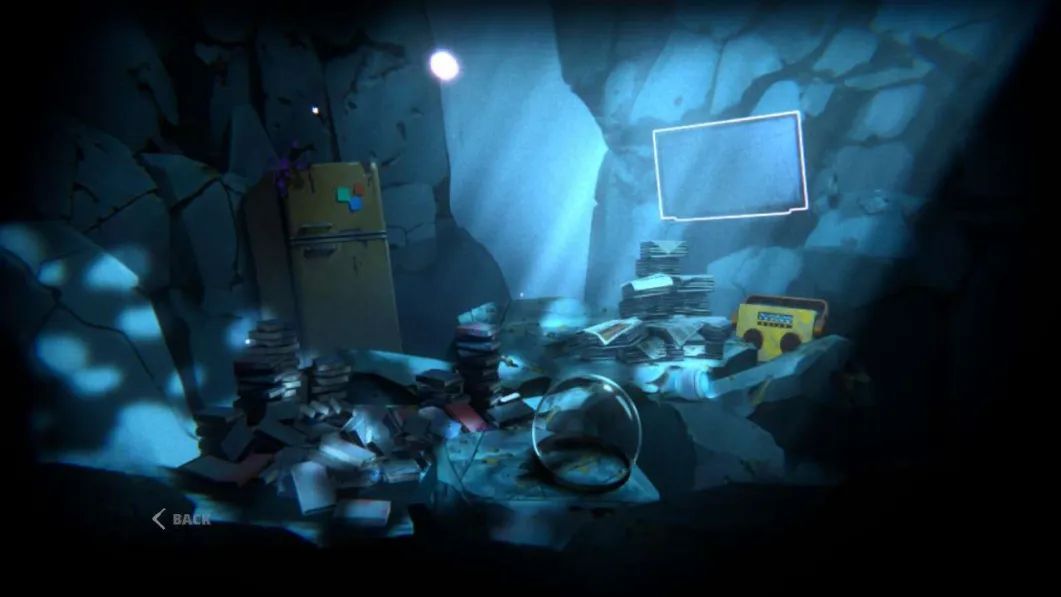
The foes that show up in the foreground don’t directly interact with the player; rather, they fire at the player, making it so the player has to find spots to take cover. These different interactions are what make the lack of combat feel more justified. Not that a game would need to have full combat mechanics to feel complete; rather, it has a nice and full system to replace that initial need for fighting back against something.
The art style that THE CUB uses is a nice and smooth visual style that almost looks like a moving children's book, with bright and vibrant colors littering every screen. To make things even better for the gameplay, the protagonist wears a bright orange shirt that makes it so that even in the dark sections of the game, it is easy to find where the player is. This is nice for when the game wants to pull back a bit and show more of the world off, allowing for the player character to be sized down by the camera and still be easy to spot.
These visuals are also a simple treat as is. A lot of the visual elements of THE CUB are dire and a bit sad if you think about it for too long, but the brighter colors and detailed environment sort of mask that initial sadness in a smart way. It all finds a good balance and never finds itself looking unpleasant or overly cartoonish.
The audio design is another very well-done part of the game. While there isn’t any voice acting for the characters when there is actual dialogue spoken, there is a voice for the radio, which provides the game’s background soundtrack. This voice will act as the player's main source of in-game lore as well as their only really friendly interaction. This radio also makes it so the music and lore dumps also have an in-world presence, as if the player is listening to it in real-time as they push forward through the ruins of Earth.
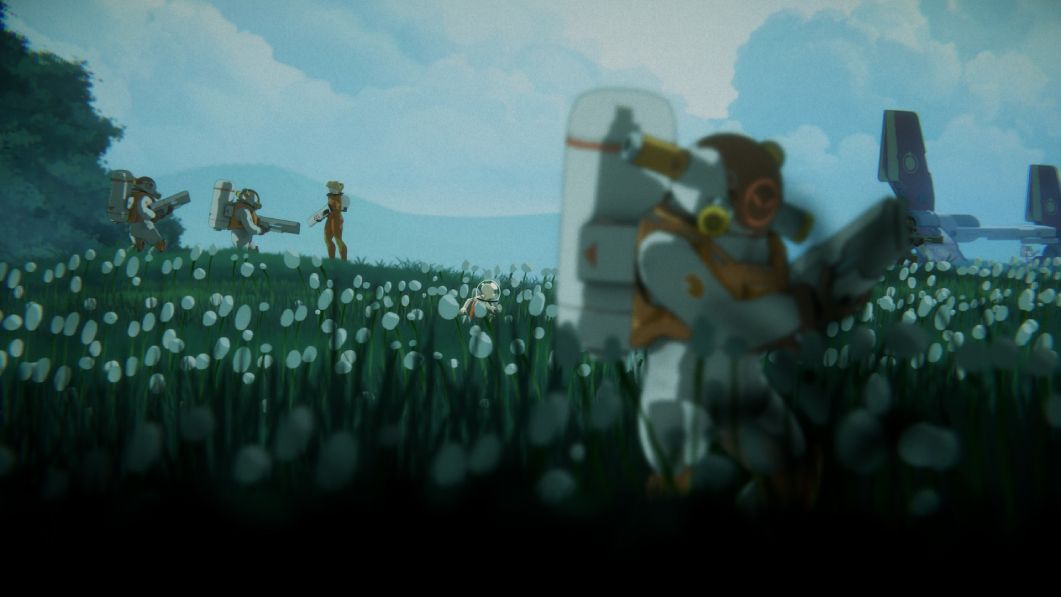
The music and a large amount of other sounds all feel alien or futuristic, which is perfect for a history that has ruined Earth and civilizations on Mars. Of course, the things left behind on Earth would become less familiar as time went on, and the longer humans were off of the planet, the less human they would initially seem.
Continuing with the audio themes, it is a great thing to note that the music in the game is good. All of the tunes were catchy and, for the most part, still had that alien or futuristic feeling to them. Some of the songs will have a classic feel to them, like something an older family member would play during a family gathering, while other songs feel futuristic with lots of electronic-sounding instruments.
It helps sell that old wasteland and future of the world type of narrative that THE CUB is going for. It is just another way that the game's developers put some thought behind the elements that build up the game. It is only a small part of the overall picture, but the music is another great element of the game as a whole.
THE CUB comes as somewhat of a surprise, as it really seems like it is selling itself short in some ways by comparing itself to the Genesis Disney games. While the comparison is very clear and intentional to a lot of the modern gaming scape, many will likely look at that as a downside, especially as there seems to be a decline in the interest in retro-styled games.
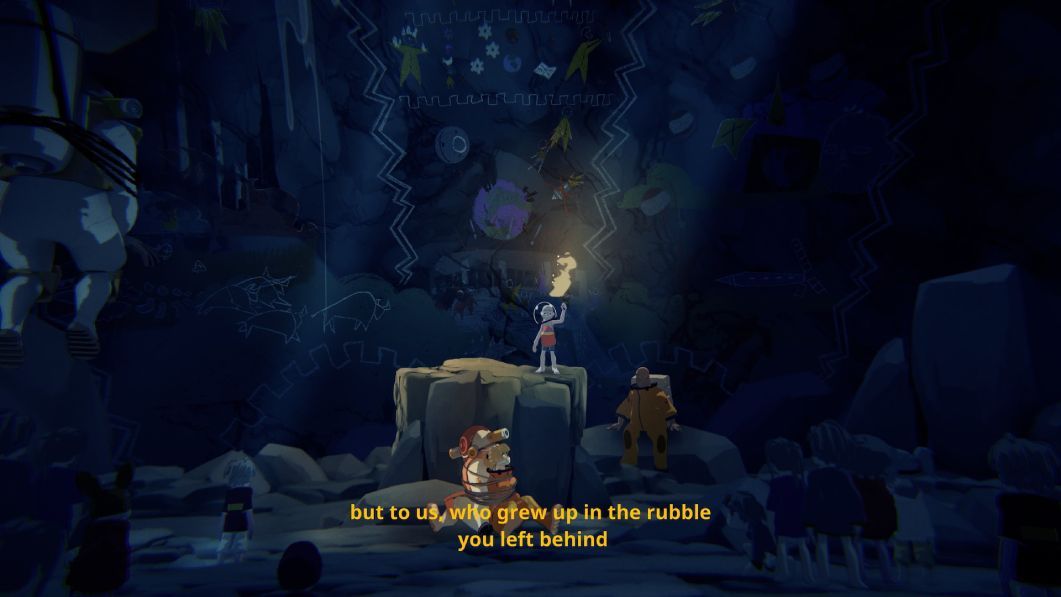
While that may be more tied to visuals than actual gameplay, it still may leave the wrong impression on some. But don’t let that description deter you if that is the case. This title is worth the time and price tag. It is a smaller title that justifies itself in the right ways, especially if you’re looking for a game to play through quickly and maybe even return to for another playthrough.
It is a shame that smaller games really get ignored in the larger scope of things. While THE CUB isn’t the next game of the year, it is an absolutely wonderful time, but it won’t likely get the attention it truly deserves simply because of how modern gaming works in terms of the mass public.
Smaller games deserve to be shown off just as much as those massive triple-A titles. Everything here is of complete quality and is really fun; it's something that just deserves a spot in the light for a little while. Here’s hoping that THE CUB gets what it deserves and its praise.
Editor, NoobFeed
Verdict
This game deserve to be shown off just as much as those massive triple-A titles.It is something that just deserves a spot in the light for a little while.Here’s hoping that THE CUB gets what it deserves and its praise.
90
Related News
No Data.

